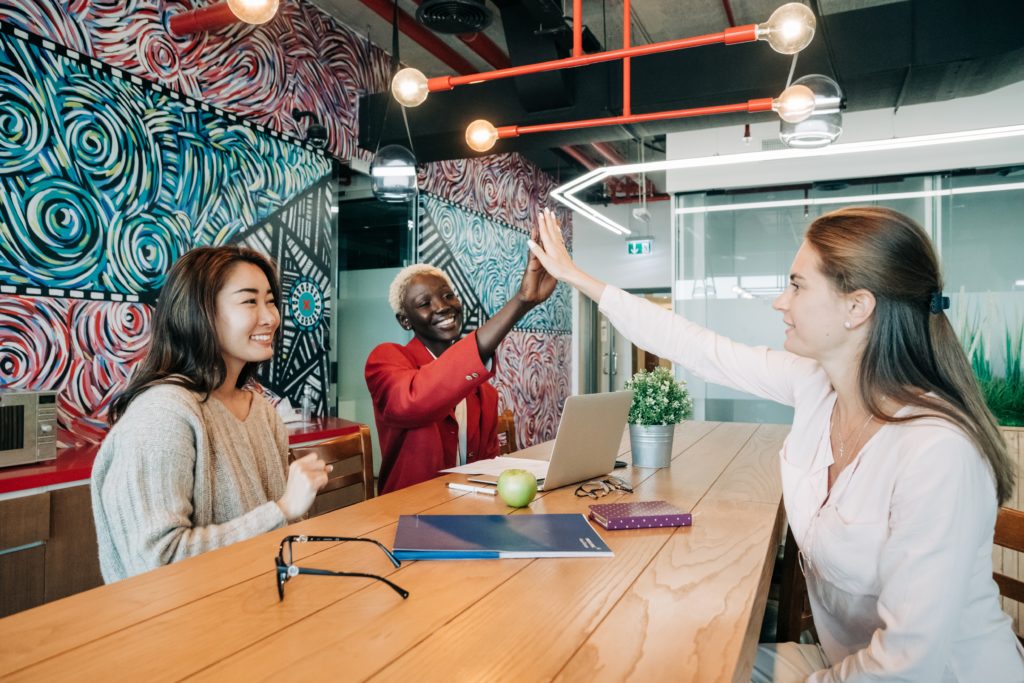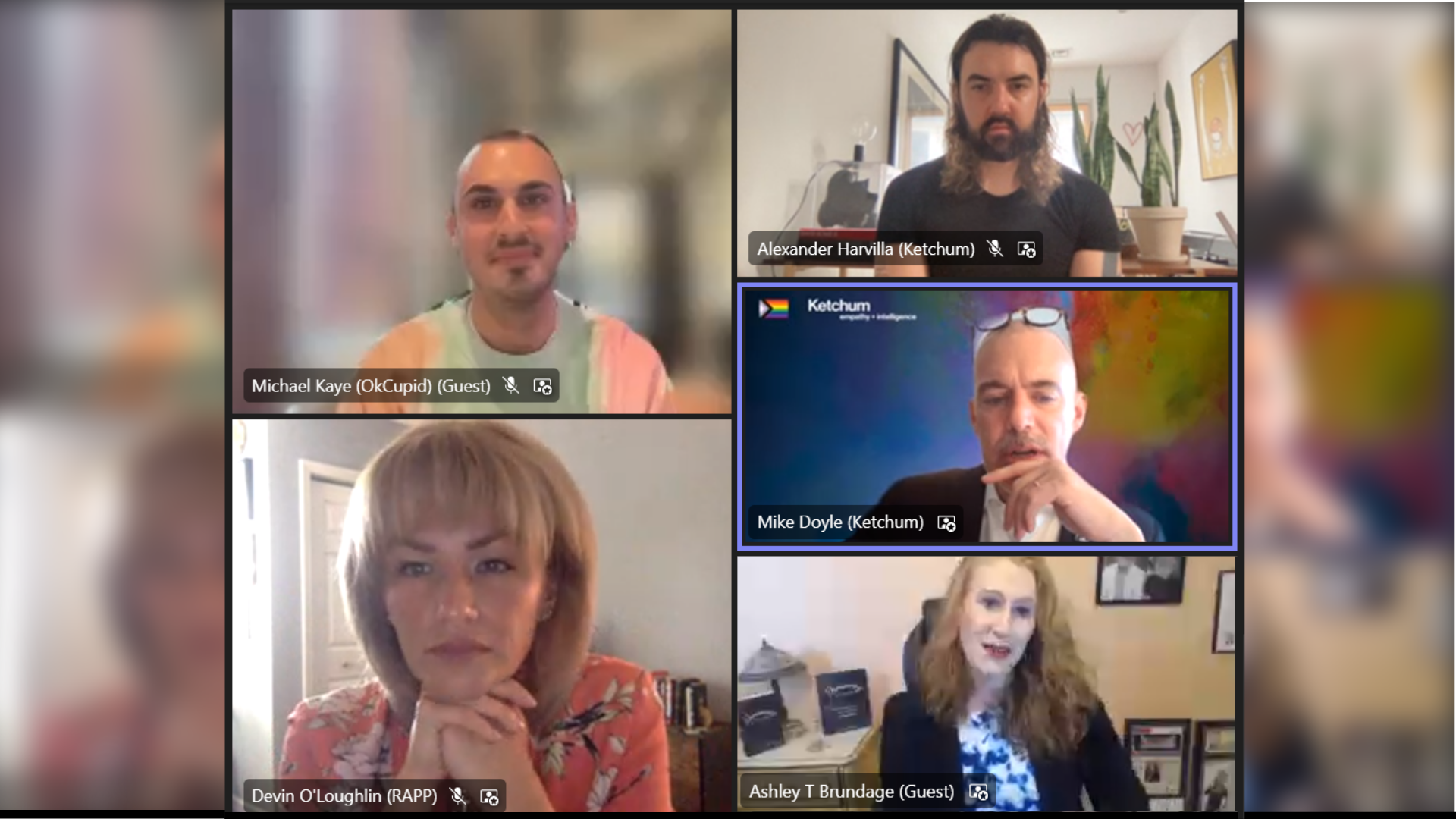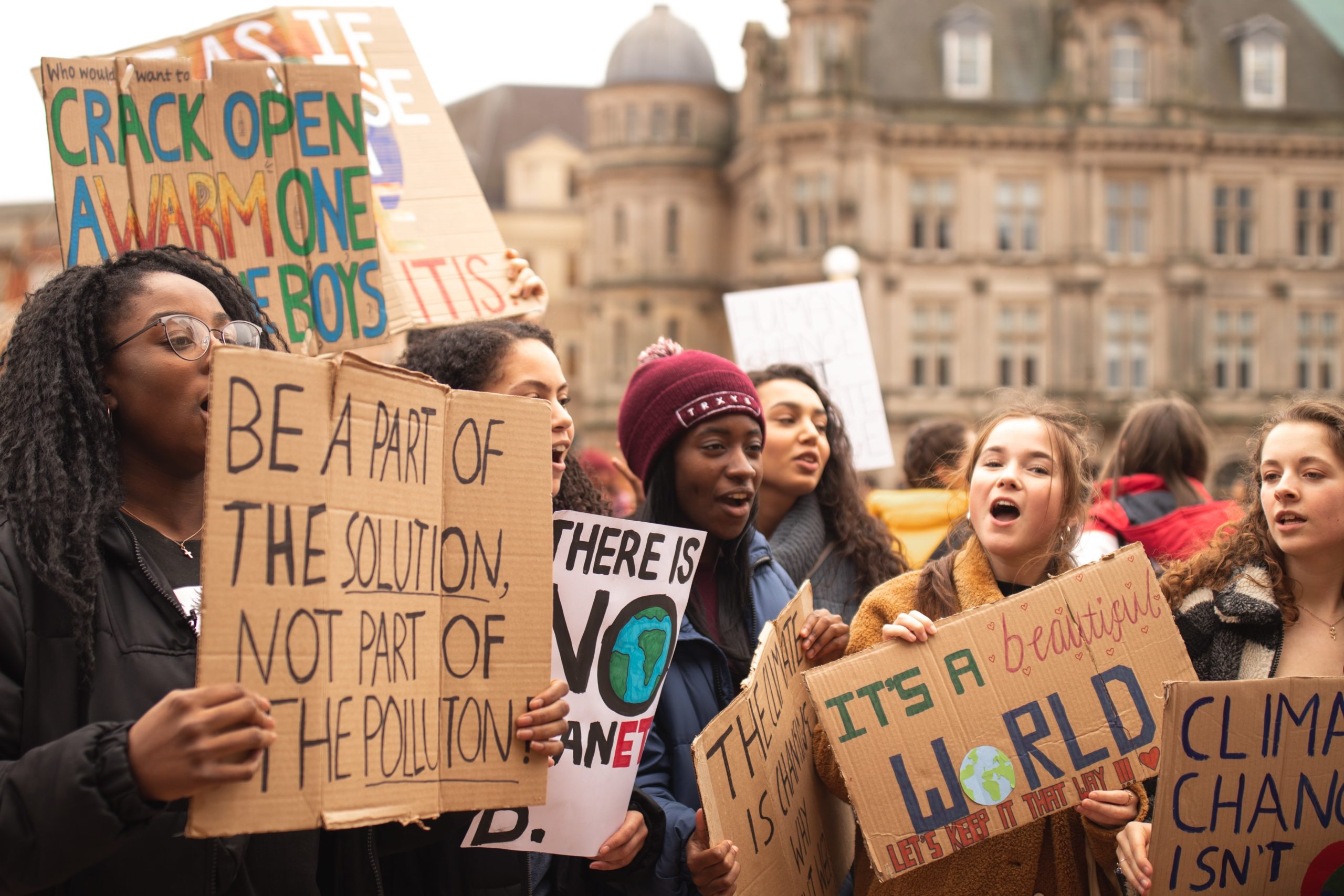“If we don’t clean our filter, it becomes the window through which we see the world.” – Bertice Berry, PhD., sociologist and author, quoted from her “Focus on the Light” keynote at the 2021 3% Conference.

Earlier this month, a team from Ketchum had the pleasure of collectively “cleaning our filters” while attending the 2021 3% Conference. Founded by Kat Gordon and now celebrating a “Decade of Difference,” the 3% Movement was born in 2012 from the insight that only 3% of Creative Directors were women. Of that group, an even smaller ratio were people of color. In the years following, this movement has grown into a rich community rooted in the sharing of ideas, resources and impact across all aspects of diversity, as well as inclusion in the advertising, marketing and communications industry.
Below, Ketchum colleagues share their takeaways from this two-day event, filled with thought-provoking speakers, inspiring content and a true sense of camaraderie among professionals who are striving to expand a culture of inclusion in the world we live and work in each day.
 Stacey Jaffe, Vice President & Reagan Walker, Analyst, Ketchum Analytics
Stacey Jaffe, Vice President & Reagan Walker, Analyst, Ketchum Analytics
Cultural context is everything, and the 10th Annual 3% Conference inspired us to consider this in a deeper way when navigating creative challenges. We need to ensure that we not only listen to, but also incorporate, diverse voices and perspectives to help us deliver better work, better insights and better experiences that are essential to the success of our teams and clients alike. As analytics practitioners, it’s our job to ensure we have the right cultural context to translate data into the most meaningful insights. We were moved by the power of culture threaded through the entire conference, but the following stood out specifically:
- How you need to build cultural context from the inside. Philip McKenzie, cultural anthropologist and strategist, talked about how diversity is grounded in radical honesty and transparency, and to build strong connections with your audiences you need to commit to transparent, honest solutions to challenges. And to be open and honest, you must commit to looking at a challenge from all angles. Cindy Gallop, founder & CEO of MakeLoveNotPorn, talked about how a commitment to diversity means bringing open, collaborative voices to the table. From a data perspective, to truly develop relevant insights and strategy means committing to diverse cultural context at all phases of the journey. Whether it’s understanding the emerging cultural trends shaping a challenge, or exploring all audiences and external factors, committing to diversity means starting with a 360-degree perspective grounded in representative data.
- How intentionality is key. At the “Next is Now: Next Creative Leaders Who are Shaping Creativity Today” panel, Neisha Tweed Bell, head of inclusive content, creative shop at Meta (formerly Facebook), stressed the importance of being intentional about building inclusive spaces. She mentioned that if a project doesn’t start with diversity, equity and inclusion, then it doesn’t end with diversity, equity, and inclusion. For those in the data and analytics space, it is important to think about how cultural context can be included in every step of the process. Are there diverse perspectives represented on the team for the project? Are the datasets we’re drawing conclusions from inclusive? Are we digging deeper into the quantitative data and analyzing the qualitative data that informs it? If we’re not actively planning for diversity and inclusion, we can’t expect our work to deliver on those aspects.
 Melissa Coombes, Senior Digital Strategist
Melissa Coombes, Senior Digital Strategist
“Culture is the ultimate unifying force,” noted Omid Farhang, founder of Majority, a marketing and advertising agency built on a diversity-led talent model during his session: “Not a Company with a Mission. A Mission with a Company.” As I listened to Omid’s presentation, I was moved when he encouraged the audience to embrace the mindset: “You be You and not The Next X.” This concept of celebrating the individual resonated with me. When we create a space where people can bring their whole selves to work, the benefits are wide-ranging. The impact on culture can generate a positive ripple effect across the business, industry and society. My biggest learning from Omid’s talk is that turning intent into action can be as simple as setting tangible goals. They do not need to be perfect, but they do need to drive progress.
 Greg Dauphin, Vice President/Senior Director, Marketing Integration
Greg Dauphin, Vice President/Senior Director, Marketing Integration
During a recent internal discussion, a group of DE&I leaders at Ketchum, in conversation with Lindsay Wagner, senior vice president and head of Diversity, Equity & Inclusion, North America, shared our personal “why” for the work we do in DE&I. My “why” is rooted in being the father of three Black children – one of whom is neurodiverse – and wanting to live in a world where my kids feel safe and free to be themselves.
That’s why I was so moved by the work of Jen White-Johnson, highlighted during her session: “What Will It Take? Dismantling Ableist Culture by Centering Black and Disabled Narratives.” An art and design activist and educator – self-described as an ADHD Afro-Latina woman – Jen said her work was about “freeing people and making sure that folks who live differently and live with a disability, whether it is fully visible or invisible, feel like they can be a leader.” She spoke passionately about ableism – a system that places value on people’s bodies and minds based on societally constructed ideas of normality – and talked about anti-ableism as a movement that must be embraced with the same commitment as anti-racism. Her comments around the need to shift the ableism conversation from “let’s see how we can fix you” to “how can the workplace be flexible to your needs and differences” truly struck a chord with me, as did the injustice of disabled individuals spending their lives feeling the need to mask their disabilities to conform to what society has defined as “normal.”
As a manager and a leader, this session opened my eyes to questions I need to continually ask myself and my organization. What unconscious biases do I have regarding the differently abled? How are we creating an inclusive workplace for the disabled, including when their disabilities may be “invisible” to an outside observer? How are we considering intersectionality in creating an inclusive workplace for the differently abled, so that we are truly centering ourselves on the whole of their lived experience? I encourage all of us to ask these questions and to follow Jen White-Johnson (@jtknoxroxs) on Instagram to learn more about her powerful work.
 Cristina Vintimilla, Account Executive, Influencer Marketing
Cristina Vintimilla, Account Executive, Influencer Marketing
When I started my influencer marketing career, one of my first accounts was a spirits brand. We looked forward to the weekly happy hours, and drinking was always a topic of conversation. Every networking and marketing event I’ve attended since then has included alcohol, with an unspoken pressure of always keeping a drink in hand. It wasn’t until the 3% Conference’s “Rethinking Booze” panel that I started to consider the questions, “Is the marketing industry dependent on alcohol? And do influencers that don’t consume alcohol feel uncomfortable at brand events?” The two women on the stage, Shari Neal Williams and Marianna Ruiz, spoke about their decision to give up alcohol and the personal benefits they felt, based on making that choice. The panel inspired me to be more mindful and respectful of others’ relationships with alcohol and to ask how the influencer marketing industry can be more inclusive to those that abstain from alcohol. Instead of defaulting to primarily serving alcoholic beverage options at industry events, we can also offer mocktails or take other approaches to make healthier alternatives available.
 Ferris Brennan, Business Development Specialist
Ferris Brennan, Business Development Specialist
“Diversity = Creativity = Profitability.” This is the drumbeat that the 3% Movement has marched to for the past 10 years, and it was a joy to join this year’s conference as this community looked back on the progress made, and ahead to the work that needs to be done. My figurative cup was filled with stories from the lives that this female-empowered network has changed for the better over the past decade. I was inspired by Jennifer Brown and Adrienne Lawrence, who discussed allyship in the workplace. This insight from Adrienne Lawrence is so powerful: “Believing something doesn’t activate it – 80% of white women see themselves as allies, but only 10% of Black women say most of their strongest allies are white.” If this statistic hits you as hard as it hit me, I think it’s time for all of us who consider ourselves to be allies to reexamine our impact.
It’s not enough to believe. Allies must come to the table and act. Because the onus shouldn’t be on the marginalized communities to enact change. It’s time for allies to be intentional, to make the investment in doing the DE&I work within our businesses and our communities – not just today, but tomorrow and next month and next year and indefinitely. Being an ally means being intersectional – are you building an inclusive space for those that not only look different than you, but for those that are differently abled, differently aged, have different points of view, and are those differences being celebrated? It’s time to rethink what allyship means. It’s not a term you can opt into. It’s a designation you earn.
To learn more about the 3% Movement and this year’s conference, visit https://www.3percentmovement.com/.



